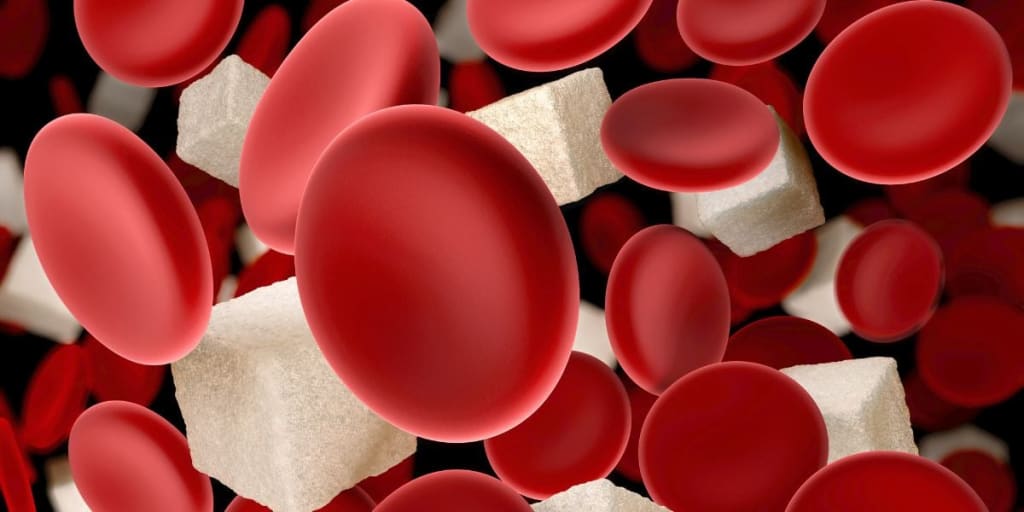Understanding Blood Sugar: An Essential Guide to Maintaining Balanced Levels
A Key to Optimal Health

Introduction
Blood sugar, also known as blood glucose, plays a crucial role in our overall health and well-being. It serves as the primary source of energy for our bodies and is regulated by a complex interplay of hormones and physiological processes. In this comprehensive guide, we will delve into the intricacies of blood sugar, its significance, and effective ways to maintain balanced levels for optimal health.
What is Blood Sugar?
Blood sugar refers to the concentration of glucose, a type of sugar, present in our bloodstream. Glucose is derived from the carbohydrates we consume, such as grains, fruits, and vegetables. It acts as fuel for our cells, providing the energy needed for various bodily functions, including physical activity, cognitive processes, and organ function.
The Importance of Blood Sugar Balance
Maintaining balanced blood sugar levels is essential for overall health and preventing a host of chronic conditions. When blood sugar levels are consistently high or low, it can lead to a variety of health problems.
High Blood Sugar
High blood sugar, known as hyperglycemia, occurs when there is an excess of glucose in the bloodstream. This condition is primarily associated with diabetes, a chronic metabolic disorder. Over time, persistently high blood sugar levels can damage vital organs, including the heart, kidneys, and eyes. It can also lead to complications such as nerve damage, poor wound healing, and an increased risk of infections.
Low Blood Sugar
Low blood sugar, known as hypoglycemia, happens when glucose levels drop below normal. This condition is often associated with diabetes but can also occur in individuals without the condition. Hypoglycemia can result in symptoms such as dizziness, weakness, confusion, and, in severe cases, loss of consciousness. Prompt treatment is necessary to prevent further complications.
Blood Sugar Regulation
Our bodies have a remarkable system for regulating blood sugar levels, primarily involving two key hormones: insulin and glucagon.
Insulin
Insulin is produced by the pancreas and plays a pivotal role in regulating blood sugar levels. When blood sugar rises after a meal, the pancreas releases insulin into the bloodstream. Insulin acts as a "key" that allows glucose to enter our cells, reducing the glucose concentration in the bloodstream.
Glucagon
Glucagon, also produced by the pancreas, serves as the counterbalance to insulin. It stimulates the liver to release stored glucose into the bloodstream when blood sugar levels drop too low. This process helps maintain blood sugar stability and prevents hypoglycemia.
Tips for Maintaining Balanced Blood Sugar Levels
Adopting healthy lifestyle habits can significantly impact blood sugar regulation and overall well-being. Here are some effective strategies to help maintain balanced blood sugar levels:
1. Eat a Balanced Diet
Choosing whole, unprocessed foods and focusing on a balanced macronutrient intake is crucial for blood sugar management. Include a variety of fruits, vegetables, lean proteins, healthy fats, and complex carbohydrates in your meals. Avoid sugary drinks, refined grains, and processed foods, as they can cause blood sugar spikes.
2. Portion Control
Be mindful of portion sizes to prevent overeating and excessive carbohydrate intake. Balancing your plate with appropriate portions of protein, vegetables, and whole grains can help regulate blood sugar levels.
3. Regular Physical Activity
Engaging in regular exercise can improve insulin sensitivity, allowing glucose to enter cells more efficiently. Aim for a combination of cardiovascular exercise and strength training to maximize the benefits. Consult with your healthcare provider before starting any new exercise program.
4. Stress Management
Chronic stress can disrupt blood sugar levels. Incorporate stress management techniques such as meditation, deep breathing exercises, or engaging in activities you enjoy to help reduce stress and promote overall well-being.
5. Regular Blood Sugar Monitoring
If you have diabetes or suspect blood sugar imbalances, monitoring your levels regularly is essential. Consult with your healthcare provider to determine the frequency and method of monitoring that is appropriate for your situation.
Conclusion
Maintaining balanced blood sugar levels is crucial for overall health and well-being. By understanding the significance of blood sugar regulation and implementing healthy lifestyle habits, you can promote optimal blood sugar balance and reduce the risk of chronic conditions associated with high or low blood sugar levels.
Remember, always consult with your healthcare provider for personalized advice and guidance. With the right knowledge and proactive approach, you can take control of your blood sugar and enjoy a healthier life.
Link to Altaí Balance review: Altaí Balance
About the Creator
Enjoyed the story? Support the Creator.
Subscribe for free to receive all their stories in your feed. You could also pledge your support or give them a one-off tip, letting them know you appreciate their work.





Comments
There are no comments for this story
Be the first to respond and start the conversation.